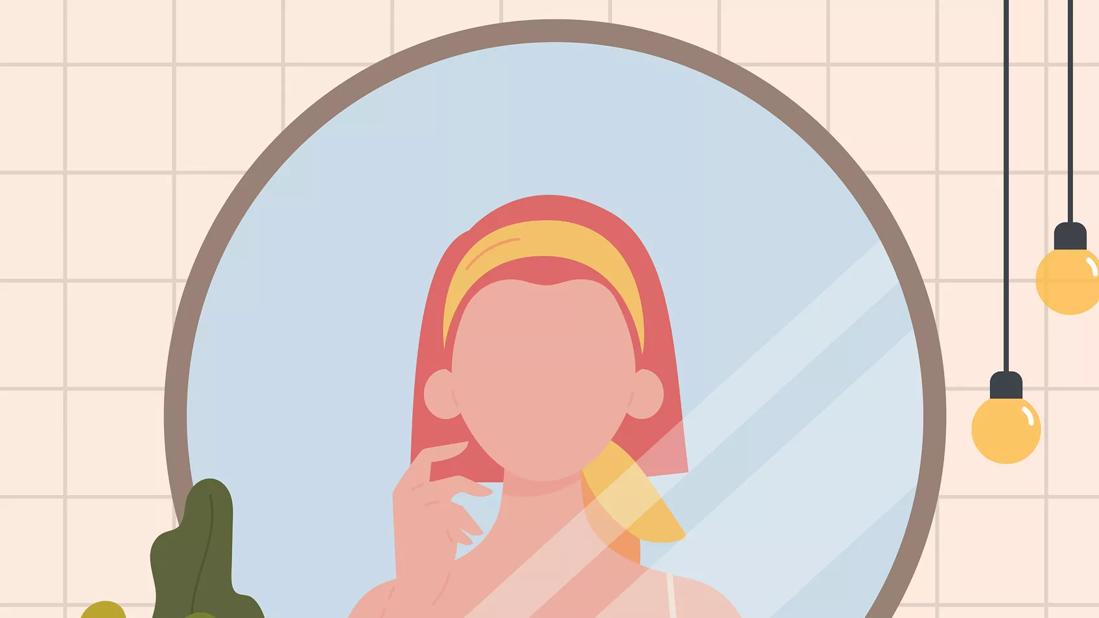The skin care trend involves washing your face two times

Image content: This image is available to view online.
View image online (https://assets.clevelandclinic.org/transform/2e966419-aadd-4ac7-a267-85f8e84c3aa3/DoubleCleansing-1294325808-770x533-1_jpg)
A person looks in the mirror and inspects their face
“Rinse and repeat” is a common direction when it comes to washing our hair. But what about our faces?
Advertisement
Cleveland Clinic is a non-profit academic medical center. Advertising on our site helps support our mission. We do not endorse non-Cleveland Clinic products or services. Policy
Though the idea of double cleansing has been around for a long time, it’s recently become a trendy skin care option.
Not only should you wash your face, but with double cleansing, you’re washing your face twice.
So, is this extra step necessary and should you be incorporating it into your skin care routine?
Not necessarily, says dermatologist Jane Wu, MD.
She talks about the pros and cons and what kind of cleanser you’ll need.
While the idea is to wash your face two times, the key is the kind of cleansers you use.
“Double cleansing means cleansing your face twice, first with an oil-based product and then followed by a water-based cleanser,” explains Dr. Wu.
The first step of using an oil-based cleanser is helpful when it comes to removing waterproof makeup and sunscreen.
“It can also be helpful in patients with oily skin as a first step to remove excess oil or sebum from the skin,” says Dr. Wu.
This extra step can help water-based cleansers work and also allow your other skin care products (think serums, moisturizers, sunscreen, night creams) to penetrate your skin better.
So, how do you double cleanse? Here’s a step-by-step guide.
Advertisement
For double cleansing, you’ll need two different types of cleansers — each with its own benefits.
“Oil-based cleansers help to remove oil-based impurities and excess sebum on the skin,” says Dr. Wu. “Water-based cleansers, which are generally foaming cleansers, remove water-soluble impurities like sweat and dirt.”
But be aware that if you have acne-prone skin, using an oil-based cleanser can cause breakouts, especially if used alone.
Regardless of skin type, Dr. Wu also says you want to avoid using cleansers that are harsh or excessively drying or cleansers with fragrance.
She offers some more advice on what products to look for based on your skin type.
If you have dry, sensitive skin, opt for a gentle, unscented water-based cleanser. Cream cleansers are less drying than foaming, Dr. Wu notes.
For those with oily, acne-prone skin, look for water-based foaming cleansers with active ingredients like salicylic acid, glycolic acid or benzoyl peroxide.
If you have combination skin — skin that’s part oily, part dry — choose a water-based foaming cleanser.
For those with normal skin, you can use a gentle, unscented water-based cleanser.
And whether you want to use a cream or foaming cleanser depends on your personal preference.
While it may seem like a better way to clean your skin, Dr. Wu says that most skin types don’t need to double cleanse.
“Double cleansing is usually not necessary,” says Dr. Wu. “For most people, washing your face once thoroughly with a gentle cleanser is more than adequate. As dermatologists, we worry more about over washing than incorporating a double cleansing routine.”
Double cleansing can be helpful for those who wear makeup, especially waterproof makeup or waterproof sunscreen.
But if you go makeup-free, double cleansing might not be the skin routine for you.
Double cleansing isn’t a step that most dermatologists recommend.
“There are other more important steps to skin care, like as using an antioxidant and sunscreen,” says Dr. Wu.
By washing your face twice, you can cause more harm than good.
“Overwashing can lead to dryness, irritation and the breakdown of the skin barrier, which subsequently causes issues like breakouts and eczema,” warns Dr. Wu.
But if you’re looking for a way to help remove all the makeup, there’s another option.
“Using a micellar water to remove makeup before a water-based cleanser is a great alternative to double cleansing,” suggests Dr. Wu.
Advertisement

Sign up for our Health Essentials emails for expert guidance on nutrition, fitness, sleep, skin care and more.
Learn more about our editorial process.
Advertisement
Bathing once a day is the general guidance, but you could also have reasons to soap up twice a day or not at all
You’re sharing your sheets with dust mites, bacteria and lots of dead skin, so you’ll want to keep your bedding fresh
You may notice itching, redness and swelling after wearing or using laundered items
We don’t fully understand how cleanliness impacts immune system development, but we do know that preventing illness is important
An icy blast may boost mental clarity, increase circulation and give your skin a little glow — but don’t overdo it
This olive oil-based soap is generally mild and safe when diluted
It’s a wash — when you bathe is a personal preference
Try turning the heat down on the water and opting for a moisturizing soap
Although it could be used as a moisturizer, this new trend is not recommended
Communicating clear limits helps protect your time, energy and emotional well-being
High cholesterol can be genetic, but testing and treatment can lower your heart disease risk